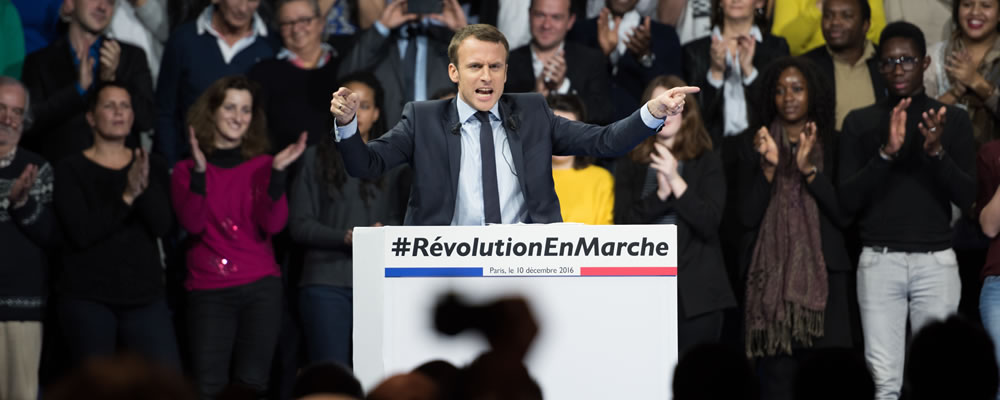The Euro Pound (EUR GBP) exchange rate has fluctuated this morning as markets growing increasingly concerned about the outcome of the upcoming French elections.
Far-right candidate and Eurosceptic Marine Le Pen currently leads first round polls, with the National Front Leader expected to claim 24% of the vote against her main rival and independent candidate Emmanuel Macron’s expected 23%.
While Macron is expected to comfortably claim the second round of elections with around 60% of the vote, markets are reluctant to rule Le Pen out of the running, following the shock of Brexit and Trump last year.
Furthermore a sudden surge in support for far-left candidate Jean-Luc Melenchon has sowed further uncertainty ahead of the voting later this month as he rocketed to 4th place in the daily Ifop-Fiducial poll.
Rabobank strategist Lyn Graham-Taylor said;
‘Two weeks ago, investors were starting to get comfortable with the idea of a Macron victory, but with the rise of Melenchon this is on the verge of becoming a four-horse race.’
With voter turnout expected to be at a record low as electorate apathy continues to grow Macron could find his chances damaged by the rise of Melenchon as it potentially spits his voters, something that is unlikely to impact Le Pen as she enjoys almost fanatical support from her followers.
EUR GBP was still able to rally this morning however thanks to an impressive ZEW Economic Sentiment index from German as confidence rocketed from 12.8 to 19.5 in April, far outpacing an expected rise to 14.0 as markets expect economic activity to continue to rise over the coming months.
Meanwhile the Pound was strengthened this morning by the release of the UK’s latest Consumer Price Index, with Britain’s inflation rate showing a remarkable level of resilience in March.
According to data released by the Office for National Statistics (ONS) the UK’s inflation rate held at a three-year high of 2.3% last month, despite a considerable decline in fuel prices following the slump in oil at the start of March.
The strong inflation figures last month were largely driven by an uptick in prices for food, alcohol and tobacco, clothing and footwear and good and services, which all saw notable growth in March and helped to offset the fall in fuel and transport costs.
However there are fears that the high rate of inflation, combined with anaemic wage growth could place further pressure on households later this year, likely leading to another drop in consumer spending.
Laith Khalaf, senior analyst at Hargreaves Lansdown said;
‘The inflationary squeeze that’s coming is going to mean consumers have to spend more at the check outs and petrol pumps, and that reduces their capacity to fund discretionary spending. It also reduces people’s propensity to save, which is particularly worrying at a time when the UK’s savings ratio is at its lowest level since the 1960s.’
Markets are optimistic however that the Bank of England (BoE) will begin discussing the possibility of tightening its monetary policy in order to combat the increase inflationary pressure as this marks the second consecutive month that inflation has outstripped the central bank’s target rate of 2%.
Looking ahead the EUR GBP exchange rate may stumble again tomorrow if Germany’s Wholesale Prices contracted in March as some analysts predict, with current forecasts predicting that prices will have fallen from 0.5% to -0.2%.
Meanwhile the Pound’s movement on Wednesday will be driven by the tone of Mark Carney’s speech tomorrow morning, with Sterling likely to fall unless the BoE Governor hints towards a potential rate hike sometime in the foreseeable future.
Current Interbank Exchange Rates
At the time of writing the EUR GBP exchange rate was trending around 0.85 and the GBP EUR exchange rate was trending around 1.17.



